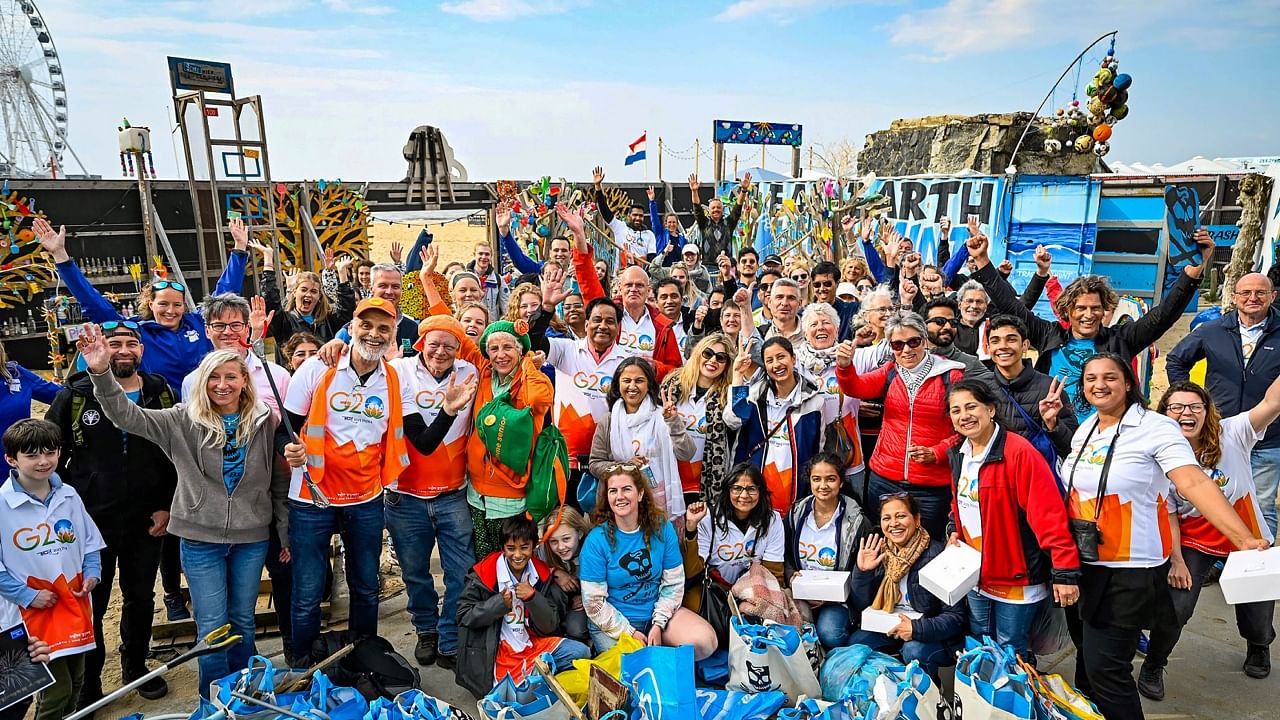
The Embassy of India in The Hague, in partnership with the Netherlands government, organised a G20 Beach Cleanup at the city’s famous Scheveningen beach and collected 240 kgs of marine litter including 5,410 cigarette butts.
“Addressing marine litter” is one of the focus areas under India's G20 Presidency and the beach cleanup drive in The Hague on Friday formed part of the global initiative to bring attention to the problem of marine litter and the need to work together towards sustainable development of oceans.
Speaking on the occasion, Ambassador of India to the Kingdom of the Netherlands Reenat Sandhu highlighted the powerful message behind the theme of India’s G20 Presidency – “One Earth, One Family, One Future”.
The embassy said in a statement that the ambassador emphasised the importance of Mission LiFE – Lifestyle For Environment and the need to adopt sustainable and environment-friendly lifestyles.
Underscoring India’s sustained efforts to mitigate marine litter, Sandhu highlighted the mega beach cleanup campaign held in India last year where 75 beaches were cleaned over a period of 75 days.
The government of the Netherlands was represented by Afke van Rijn, Director General and Vice-Minister for Environment at the Dutch Ministry of Infrastructure & Water Management.
Rijn appreciated India’s commitment to promoting international cooperation in addressing challenges of environmental pollution and climate change and pointed to the efforts by the Netherlands government to combat plastic litter at the national level.
The event was also supported by the Municipality of The Hague and representing the City was Deputy Mayor Hilbert Bredemeijer, who spoke about some of the unique initiatives taken in The Hague to address marine pollution.
More than 150 people, including local Dutch citizens, actively participated in the beach cleanup activity and jointly collected 240 kgs of marine litter including 5,410 cigarette butts.
Two civil society organisations in the Netherlands working on raising awareness of marine litter in the North Sea – the Stichting Noordzee and TrashUre Hunt were also part of the campaign.
A ‘Waste-to-Art’ open-air exhibition, showcasing art objects made from trash collected at the beach, was also mounted, which was visited by several hundreds of people at Scheveningen Beach.
Ambassadors and diplomatic colleagues from other G20 countries and invited countries also participated in the beach cleanup, with the Indian High Commission in London planning a Beach Cleanup at the famous Brighton Beach in southern England on May 21.
It will coincide with the Indian Ministry of Environment, Forests and Climate Change organising a beach cleaning drive involving delegations from various G20 members and guest countries in Mumbai, on the sidelines of the G20 meetings on the environment.
The initiative is designed to draw global attention to the need to combat coastal and marine pollution and the role of citizens and their participation in preventing and cleaning up marine litter.